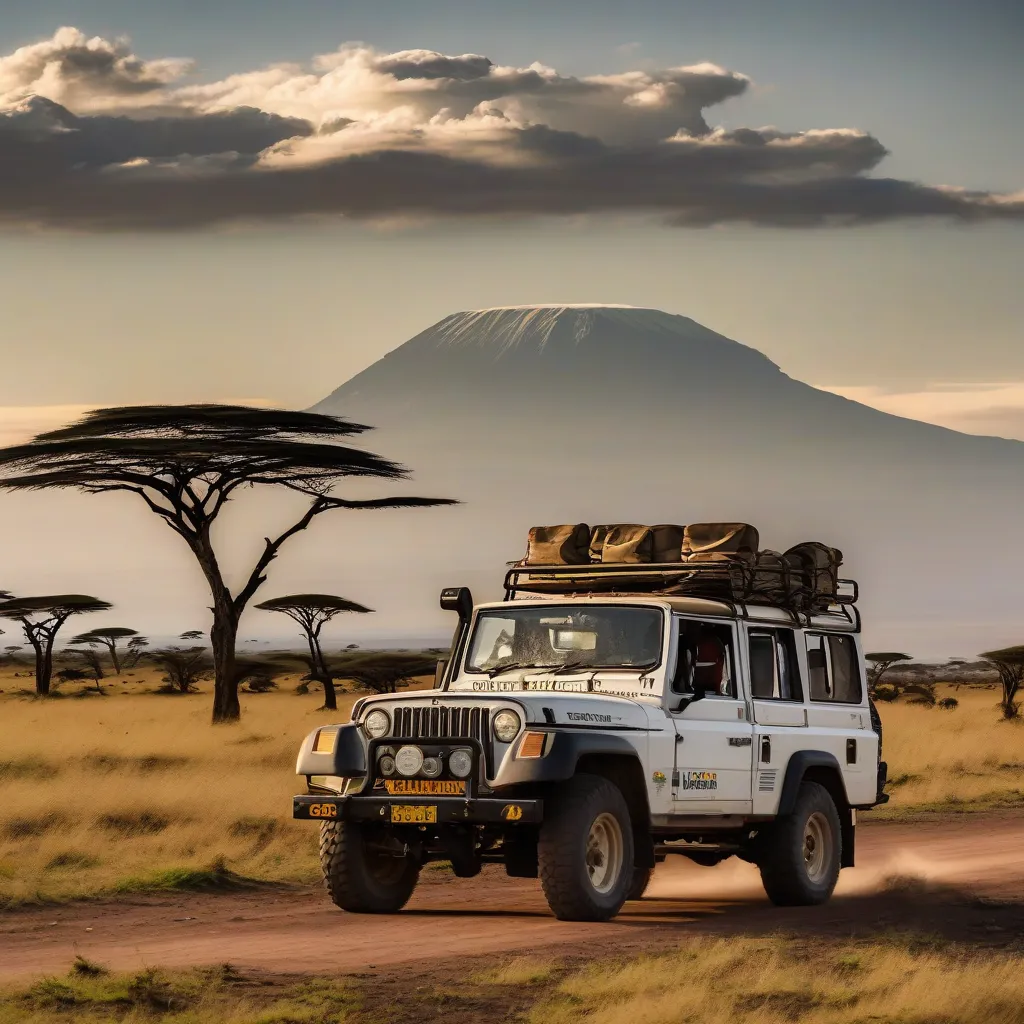“Hakuna Matata!” The iconic Swahili phrase meaning “no worries” perfectly embodies the spirit of Kenya, a country overflowing with natural beauty and cultural richness. But the question on many travelers’ minds is, “Is It Dangerous To Travel To Kenya?”
Like any destination, Kenya presents its own set of challenges, but with careful planning and awareness, a safe and unforgettable trip awaits. This guide delves into the realities of safety in Kenya, equipping you with the knowledge to plan your dream African adventure.
Navigating Safety Concerns in Kenya
Wildlife and You: Respecting the Wild
Kenya is renowned for its incredible wildlife, from the majestic elephants of Amboseli National Park to the thundering wildebeest migration in the Maasai Mara. While awe-inspiring, these animals are wild and deserve respect.
Tips for Wildlife Safety:
- Choose reputable tour operators: Opt for experienced guides trained in wildlife behavior.
- Maintain a safe distance: Always keep a respectful distance from animals, even if they appear docile.
- Follow park regulations: Adhere to all posted signs and guidelines within national parks and reserves.
Health and Well-being: Staying Healthy on Your Journey
Kenya’s tropical climate and diverse environments require some health precautions.
Health Tips for Kenya:
- Consult your doctor: Discuss necessary vaccinations and preventative medications well in advance of your trip.
- Stay hydrated: Drink plenty of bottled water, especially in hot climates.
- Pack insect repellent: Protect yourself from mosquito bites and potential diseases like malaria.
- Be mindful of food and water: Consume food from reputable sources and stick to bottled or boiled water.
Navigating Urban Areas: Staying Safe in Cities
Like any major city, Nairobi and Mombasa have areas where extra vigilance is recommended.
Safety Tips for Urban Areas:
- Avoid walking alone at night: Opt for taxis or ride-sharing services after dark.
- Safeguard your valuables: Be mindful of your belongings, especially in crowded areas.
- Choose accommodations wisely: Research and select reputable hotels or guesthouses in safe neighborhoods.
Planning Your Kenyan Adventure
When to Go: Finding Your Ideal Time
Kenya boasts a pleasant climate year-round, but the best time to visit depends on your interests.
- Dry Season (June-October): Ideal for wildlife viewing as animals congregate around water sources.
- Wet Season (November-May): Lush landscapes and fewer crowds, making it a great time for birdwatching and cultural experiences.
What to Pack: Essentials for Your Journey
- Comfortable walking shoes: Essential for exploring national parks and cities alike.
- Light, breathable clothing: Pack for warm days and cooler evenings.
- Swimsuit: A must-have for relaxing on the coast or at your hotel pool.
- Reusable water bottle: Stay hydrated while minimizing plastic waste.
- Small flashlight: Helpful for navigating during power outages.
Embracing the Spirit of Kenya
Beyond practical considerations, embracing the cultural nuances of Kenya enhances your travel experience. Learning a few basic Swahili phrases, like “Jambo” (hello) and “Asante” (thank you), goes a long way in fostering connections with locals.
Remember, travel is about stepping outside your comfort zone while respecting the cultures and environments you encounter. By approaching your Kenyan adventure with an open mind and a spirit of adventure, you’ll create memories to last a lifetime.
FAQs: Answering Your Kenya Safety Concerns
Is it safe to travel to Kenya alone?
Traveling solo in Kenya is possible, but it’s essential to exercise extra caution. Opt for organized tours or activities, stay in well-lit areas, and inform trusted individuals of your itinerary.
Is it safe to drink tap water in Kenya?
It’s generally not recommended to drink tap water in Kenya. Stick to bottled water, boiled water, or water purification tablets for safe consumption.
Are credit cards widely accepted in Kenya?
Major credit cards are accepted in larger hotels, restaurants, and shops in cities. However, it’s advisable to carry some local currency (Kenyan Shillings) for smaller establishments and transactions.
What should I do in case of an emergency in Kenya?
Familiarize yourself with local emergency numbers (police: 999, ambulance: 999) and the contact information for your embassy or consulate.
Travelcar.edu.vn: Your Gateway to Kenya
Ready to embark on your Kenyan adventure? Visit travelcar.edu.vn for expert travel tips, curated itineraries, and insights into the wonders of Kenya. Discover the magic of the Maasai Mara, the breathtaking views of the Great Rift Valley, and the vibrant culture of this captivating country.
 Safari Adventure in Amboseli National Park
Safari Adventure in Amboseli National Park
 Maasai Woman with Traditional Beadwork
Maasai Woman with Traditional Beadwork
Kenya awaits, ready to share its wonders with the world. Embrace the adventure, and let the spirit of “Hakuna Matata” guide your journey.